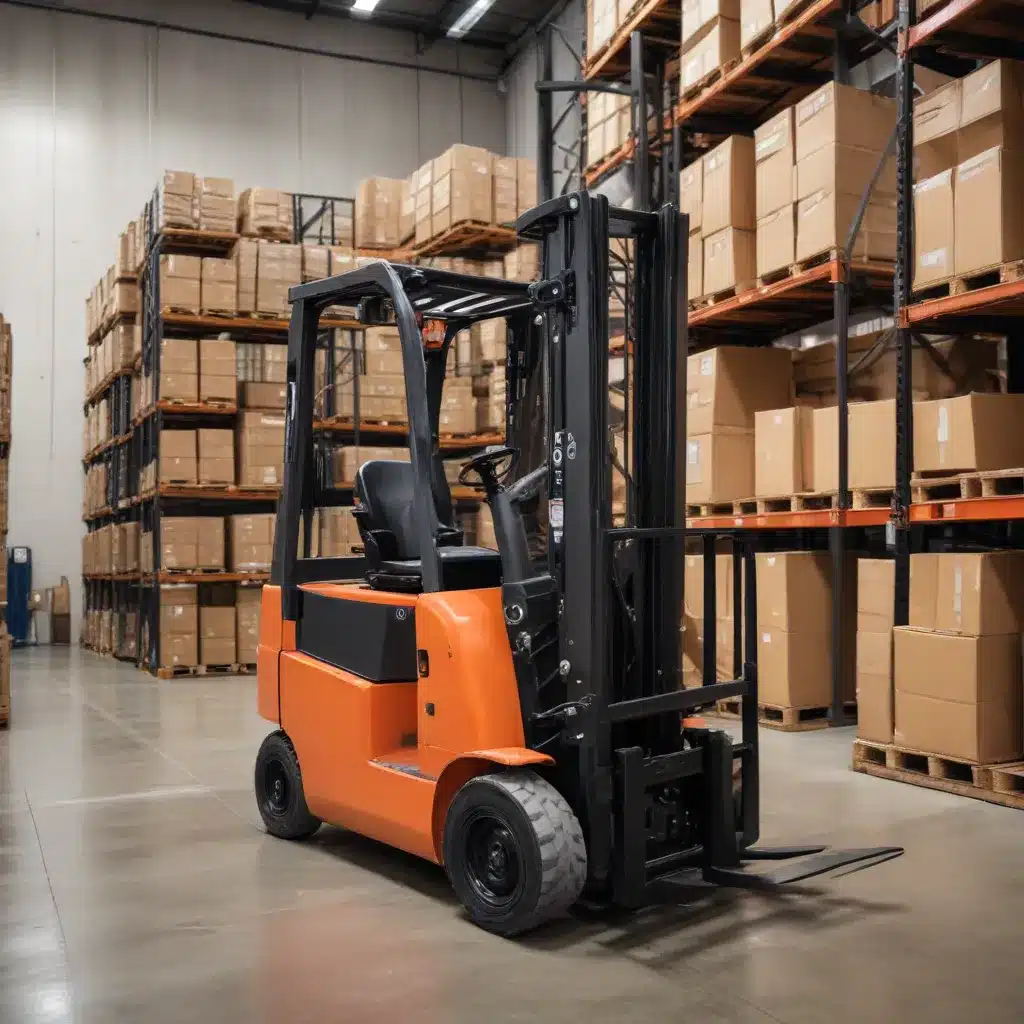
Maintaining a Secure and Productive Warehouse Environment
In the fast-paced world of warehousing and logistics, ensuring the safety and efficiency of your forklift operations is paramount. Forklift operators play a crucial role in the smooth functioning of your facility, responsible for the seamless movement and storage of goods. However, operating these powerful machines requires specialized skills, comprehensive training, and a deep understanding of safety protocols.
As an industry expert, I’ve witnessed firsthand the importance of implementing a robust forklift operator training program. Not only does it safeguard your employees and protect your assets, but it also contributes to the overall productivity and cost-effectiveness of your warehouse operations.
In this article, we’ll delve into the key elements of a successful forklift operator training program, equipping you with the knowledge and strategies to ensure safe and efficient forklift fleet management.
Regulatory Requirements and the Importance of Forklift Operator Training
In accordance with the Occupational Safety and Health Administration (OSHA) regulations, anyone operating a forklift, electric jack, stock picker, or aerial scissor lift must be certified by a qualified trainer. These certifications are valid for three years, and operators must undergo both formal classroom instruction and hands-on practical training before being issued a license.
The training curriculum must cover a wide range of topics, including safe operation practices, proper load handling techniques, fire safety protocols, and the use of personal protective equipment (PPE). Employers have a legal and moral obligation to provide this training, as it not only safeguards their workers but also helps them comply with industry standards and avoid costly fines or legal liabilities.
Implementing a Comprehensive Forklift Operator Training Program
Crafting an effective forklift operator training program involves several key components:
1. Classroom Instruction
The classroom portion of the training should cover the theoretical aspects of forklift operation, including an overview of the equipment, its capabilities and limitations, and the various safety features. Operators should also receive instruction on traffic management, pedestrian safety, and emergency procedures.
2. Hands-On Training
Hands-on training is essential to ensure that operators can apply the theoretical knowledge in a practical setting. This includes familiarizing them with the controls, practicing maneuvering the forklift in different scenarios, and demonstrating proper load handling techniques.
3. Operator Evaluation and Certification
After completing the classroom and hands-on training, operators should be evaluated on their skills and knowledge. This assessment process helps ensure that they are qualified to operate the forklift safely and can be issued the necessary certification.
4. Ongoing Training and Refreshers
Forklift operation is a perishable skill, and operators need to maintain their proficiency through regular refresher courses. These sessions can cover updates to safety protocols, changes in equipment or regulations, and any new operational techniques.
5. Operator Monitoring and Performance Tracking
Implementing a forklift fleet management system can provide valuable insights into operator performance, including metrics such as speed, productivity, and safety incidents. This data can help identify areas for improvement and guide the ongoing training program.
Promoting a Culture of Safety and Efficiency
Establishing a culture of safety and efficiency within your warehouse is crucial for the success of your forklift operator training program. This involves:
-
Clearly Defined Safety Protocols: Develop and communicate a comprehensive set of safety guidelines, including speed limits, traffic management, and load handling procedures.
-
Regular Equipment Maintenance: Implement a preventive maintenance schedule for your forklift fleet to ensure the machines are in optimal working condition, reducing the risk of breakdowns and accidents.
-
Empowering Operators: Encourage operators to take an active role in maintaining safety, reporting any issues or concerns, and providing feedback to continuously improve the training program.
-
Fostering Accountability: Hold operators and supervisors accountable for adhering to safety protocols and promoting a culture of responsibility throughout the organization.
By prioritizing forklift operator training and cultivating a safety-first mindset, you can create a secure and productive warehouse environment that benefits both your employees and your bottom line.
Partnering with Experienced Providers
While some companies choose to conduct in-house forklift operator training, many opt to collaborate with external providers who specialize in this field. These professionals bring a wealth of industry knowledge, proven training methodologies, and access to the latest equipment and technologies.
When selecting a training partner, look for providers with a strong track record, industry-recognized certifications, and a commitment to delivering customized solutions that address your specific needs. Additionally, ensure that the training program meets or exceeds all OSHA requirements and is tailored to the unique characteristics of your warehouse operations.
Conclusion
Investing in a comprehensive forklift operator training program is a crucial step in maintaining a safe and efficient warehouse environment. By equipping your employees with the necessary skills, knowledge, and mindset, you can minimize the risk of accidents, reduce equipment damage, and drive overall productivity.
Remember, forklift safety is not just a legal requirement – it’s a fundamental aspect of responsible warehousing and logistics management. By prioritizing operator training and cultivating a culture of safety, you’ll not only protect your assets and workforce but also position your business for long-term success.
To learn more about optimizing your forklift fleet operations, I encourage you to explore the comprehensive solutions offered by Forklift Reviews. Their team of industry experts can provide guidance, resources, and innovative technologies to help you maximize the efficiency and safety of your warehouse.

